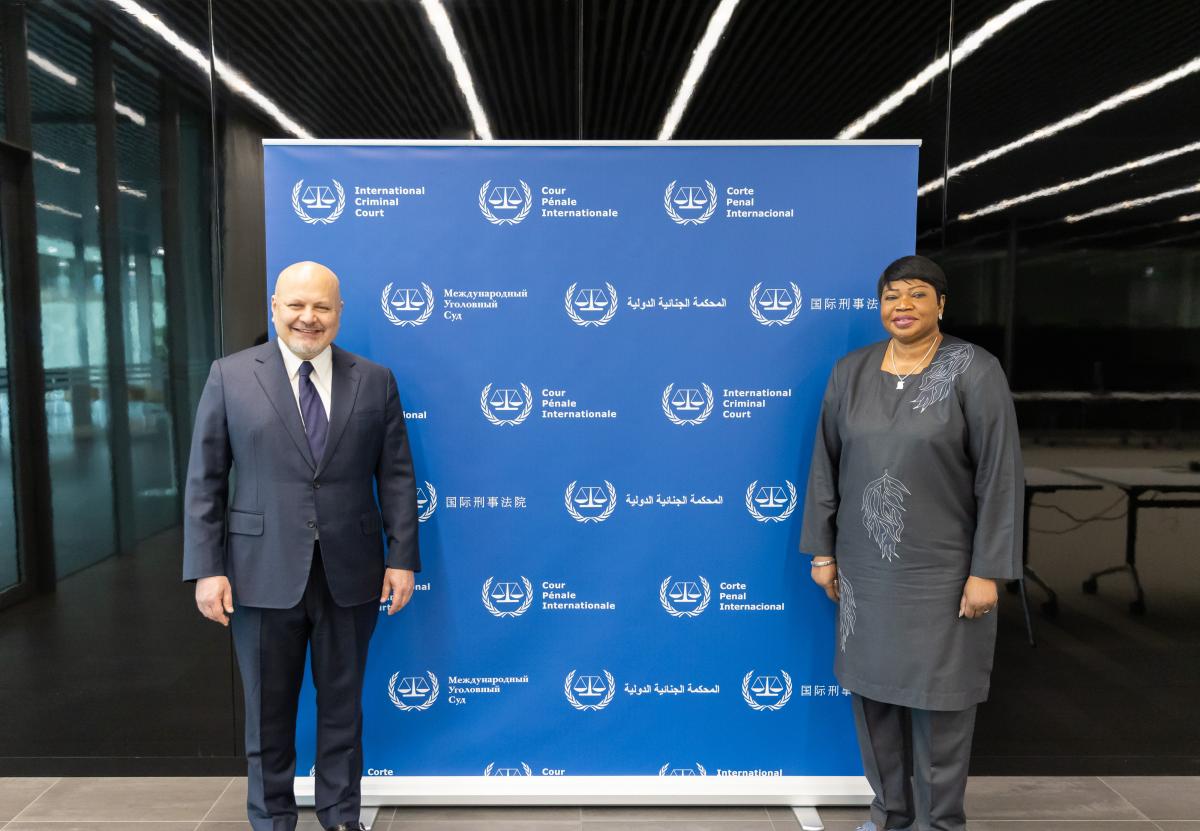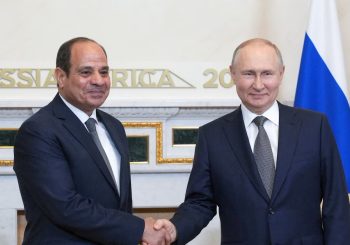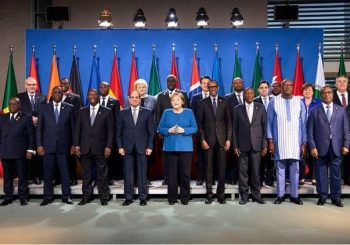Can those who commit the most heinous of crimes be convicted for their transgressions on the international stage?
The answer is yes, but under certain conditions, and largely depending on where they come from.
Since the Nuremberg Trials—set up by the Allies at the end of the Second World War—prosecuted Nazi leaders, in 1945, for their atrocities and war crimes, and the Tokyo War Crimes trial began prosecuting Japanese leaders, in 1946, for prolonging WWII, international tribunals have appeared for some of the most tragic humanitarian catastrophes—namely the Rwandan Genocide (1994) and the Yugoslav Wars that started in 1991,including the 1995 Srebrenica Massacre.
Recognizing the need for a body to determine and prosecute international criminal responsibility—a relatively new phenomenon in international law that is still developing—the international community came together in Rome in 1998 to draft a statute for a world court for individuals. Enter the International Criminal Court (ICC).
What is the ICC
The ICC, established by the Rome Statute, which entered into force in 2002, concerns itself with the four crimes specified in the treaty: genocide, war crimes, crimes against humanity, and ‘the crime of aggression’.
Genocide is certain acts made “with intent to destroy, in whole or in part, a national, ethnical, racial or religious group,” while war crimes are violations of the law of armed conflict, which includes the Geneva Conventions. Crimes of aggression are the use of armed force in violation of the Charter of the United Nations.
Crimes against humanity are more nebulous, defined as acts specified in the statute, such as murder, rape, persection, forcible population transfers, torture, and apartheid, among others mentioned, when “committed as part of a widespread or systematic attack directed against any civilian population, with knowledge of the attack.”
A crucial point to keep in mind is that the ICC does not have jurisdiction over individuals from states that have not ratified the Rome Statute.
The exception to this rule applies when crimes committed by individuals of non-member states in the territory of states who are in fact parties to the statute. On this basis, the ICC issued an arrest warrant for Russian President Vladimir Putin in March 2023 for crimes committed in Ukrainian territory, despite Russia not having signed and ratified the Rome Statute. Heads of state and other positions in government do not have immunity from prosecution; generally, in international law, committing crimes such as genocide are considered a violation of jus cogens norms—norms that supercede any other rule in international law—whose breaking is impermissible under any circumstance.
Member states or the UN Security Council may refer cases to the prosecutor, and the prosecutor may also launch investigations at their own initiative. However, if a state that has jurisdiction is investigating a certain case, the ICC is not permitted to launch its own investigation “unless the State is unwilling or unable genuinely to carry out the investigation or prosecution,” according to the Rome Statute.
Active Investigations
Currently, the ICC has 17 open investigations and three cases under preliminary examination. 31 cases have been brought before the court, with 40 arrest warrants issued. 21 have been implemented.
The ICC has seven people in custody—all from Africa—while 16 suspects remain at large. Nine out of the 17 cases currently being investigated are in Africa, four are in Asia, two are in Europe, and one is in South America.
Despite the US invasion of Iraq occurring after the entry into force of the Rome Statute, US leaders were not prosecuted for their crimes as neither the US nor Iraq are state parties to the treaty. In fact, only 123 countries are, leaving a large portion of states outside of the Court’s jurisdiction, including the US, Russia, and China. Egypt is also not a party to the statute.
The fact of the matter is that leaders are reluctant to give the ICC jurisdiction out of fear of being prosecuted themselves, or of the ICC investigating things they consider best left uninvestigated.
Israel, who has likely committed crimes against humanity as well as war crimes, is also not a member of the court, for obvious reasons. However, an investigation into crimes committed in Palestine is underway.
Palestine
Palestine accepted ICC jurisdiction in 2014 and acceded to the Rome Statute in 2015, so the Court can only prosecute crimes that have taken place in Palestinian territory since 2014, and not retroactively.
Palestine referred the issue to the prosecutor, Fatou Bensouda, in 2018. Bensouda announced in December of 2019 that the criteria for opening an investigation has been met.
“However, given the complex legal and factual issues attaching to this situation, she announced that she would be making a request to Pre-Trial Chamber I for a ruling to clarify the territorial scope of the Court’s jurisdiction in this Situation,” the ICC website says.
In January 2020, the pre-trial chamber invited Palestine, Israel, and the victims in the situation in Palestine to submit observations regarding the prosecutor’s request. Then, in February 2021, the Court decided that it has jurisdiction over crimes committed in occupied Palestinian territory per the 1967 borders, which includes Gaza and the West Bank.
In March 2021 the investigation was officially opened. It is still underway since then and no update has been made.
Darfur, Sudan
Other investigations include that of crimes committed in Darfur.
In 2003, the Sudan Liberation Army (SLA) and the Justice and Equality Movement (JEM) launched a war against Sudan’s government.
“The conflict in Darfur presents a very complex situation with very complex problems, and understanding of which has already been made more difficult by the propaganda, which invariably accompanies war. The region is home to some 80 tribes and ethnic groups divided between nomads and sedentary communities. The rebels appear to have been identified within two or three communities of the Fur, Massalit and the Zaghawa tribes which straddle the Sudan-Chad border,” according to Reliefweb.
“The situation in Darfur was the first to be referred to the ICC by the United Nations Security Council, and the first ICC investigation on the territory of a non-State Party to the Rome Statute. It was the first ICC investigation dealing with allegations of the crime of genocide.
Former Sudan’s President Omar Al Bashir is the first sitting President to be wanted by the ICC, and the first person to be charged by the ICC for the crime of genocide. Neither of the two warrants of arrest against him have been enforced, and he is not in the Court’s custody,” the ICC website says.
Bashir is wanted for five counts of crimes against humanity, two counts of war cromes, and three counts of genocide for acts allegedly committed in Darfur between 2003 and 2008.
According to latest reports, Bashir is still in Sudan, in a military hospital.
The recent outbreak of conflict in Sudan between the military, led by General Abdelfattah Al-Burhan, and the paramilitary Rapid Support Forces, led by General Mohamed Hamdan Dagalo, known as Hemdeti, has inflamed violence in West Darfur.
Last month, 87 bodies were found in a mass grave.
Libya
The case of Libya is notable in many ways; the Arab League asked the Security Council to intervene, and the Security Council intervened militarily, invoking the Responsibility to Protect for the first time against a regime’s will.
In addition, After the civil war erupted in Libya following repression of protests against leader Muammar Al Gaddafi, the ICC was also asked by the Security Council to launch an investigation.
The Court issued arrest warrants for Gaddafi, who was assassinated in 2011, as well as his son, Saif Al-Islam, who remains at large. In total, five warrants were issued, but no one was taken in due to four of the five dying, and the fifth being Saif Al-Islam.
Other Investigations
The ICC has opened several other investigations. The Philippines, for example, withdrew from the Rome Statute in 2019 after joining in 2011. So the ICC, though it does not have jurisdiction after 2019, opened an investigation into crimes committed in the country between 2011 and 2019.
“The Court retains jurisdiction with respect to alleged crimes that occurred on the territory of the Philippines while it was a State Party, from 1 November 2011 up to and including 16 March 2019.”
Former president Rodrigo Duterte launched a “war on drugs” that “has led to the deaths of over 12,000 Filipinos to date, mostly urban poor. At least 2,555 of the killings have been attributed to the Philippine National Police. Duterte and other senior officials have instigated and incited the killings in a campaign that could amount to crimes against humanity,” according to Human Rights Watch.
An investigation has also been launched for the case of Bangladesh/Myanmar, where the “there exists a reasonable basis to believe crimes against humanity of deportation, across the Myanmar-Bangladesh border, and of persecution, on grounds of ethnicity and/or religion, against the Rohingya population may have been committed,” according to the ICC.
Other investigations include those in Afghanistan, the Central African Republic, Georgia, Kenya, Mali, Burundi, Venezuela, and, as previously mentioned, Ukraine—among others.
The way the ICC works is certainly flawed. In part, it reflects the flaws of the voluntary nature of international law, although one would be hard pressed to find an immediate fix to this issue. However, it is still an institution that stands for justice on the international stage.
It is important to understand the International Criminal Court’s flaws and strengths, as well as how it functions and what it is doing, so that intellectuals, policymakers, diplomats, and international civil servants can nudge the Court towards minimizing flaws and maximizing strengths. Removing the obstacles on the path of justice that hinder the Court’s free hand will be key in future policy.
Subscribe to the Egyptian Streets’ weekly newsletter! Catch up on the latest news, arts & culture headlines, exclusive features and more stories that matter, delivered straight to your inbox by clicking here.






Comment (1)
[…] A World Court for (Some) Criminals? How the ICC Works From ‘Digimon’ to ‘Demon Slayer:’ The Rise of Anime in Egypt […]